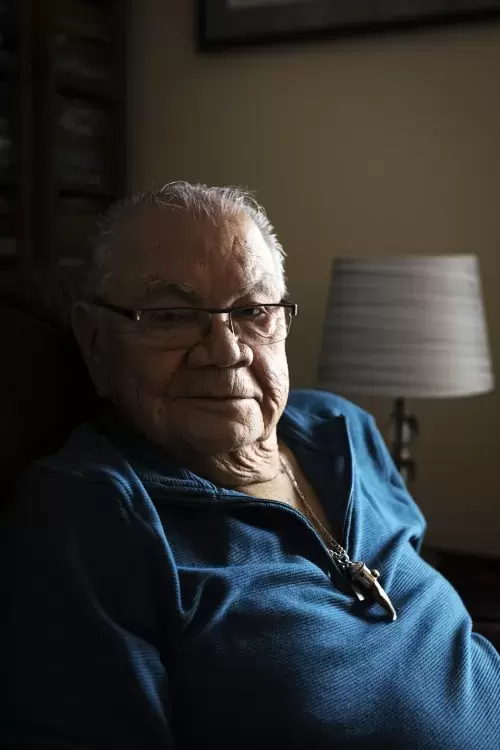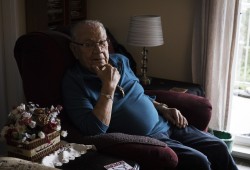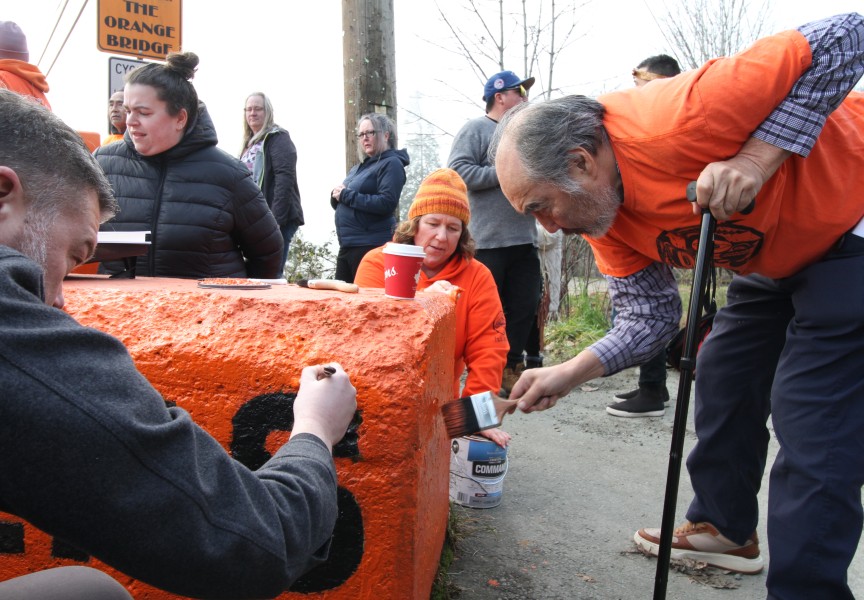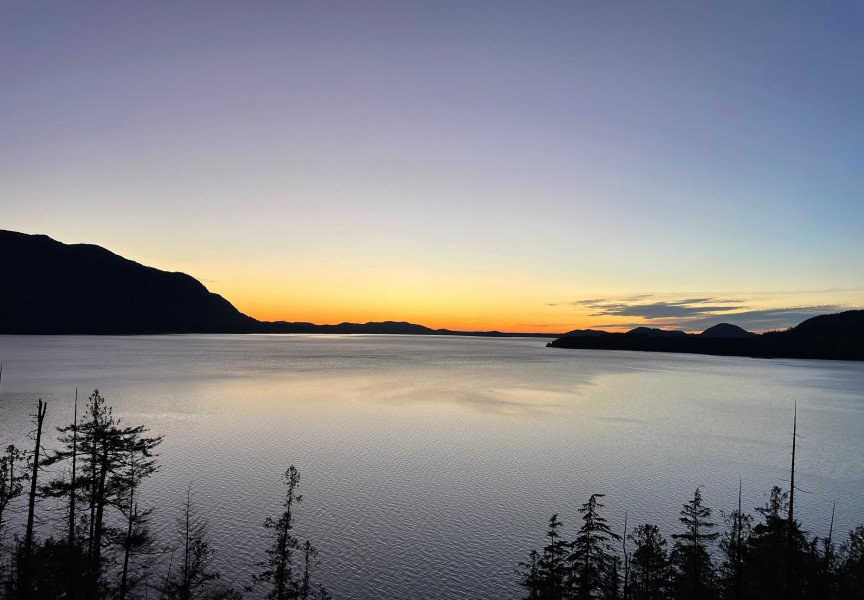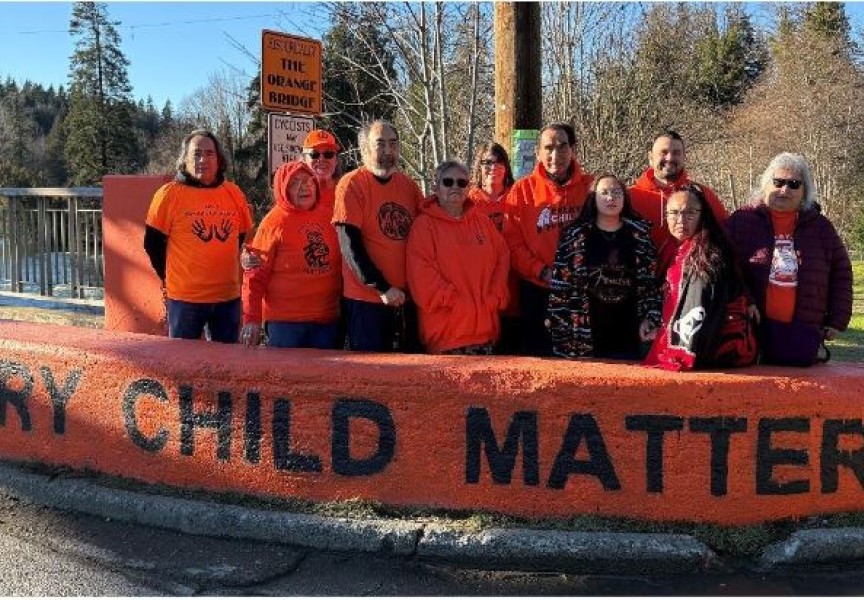Tla-o-qui-aht elder and former member of the Survivor’s Committee for the Truth and Reconciliation Commission of Canada, Barney Williams, has been named a recipient of the 2023 BC Reconciliation Award.
The award, granted by the Office of the Lieutenant Governor of B.C., recognizes four individuals and two organizations who have demonstrated “exceptional leadership, integrity, respect and commitment to furthering reconciliation with Indigenous peoples in the province.”
“I’m just really humbled. It’s pretty incredible to me,” Williams said. “I’m very proud and so is my children and grandchildren.”
Williams is a hereditary leader, originally from Opitsaht on Meares Island, who was taken from his home and forced to attend a residential school on Flores Island when he was six years old. It was there he experienced years of abuse and where his alcohol addiction began.
After getting sober at 27 years old, Williams took his own lived experiences and used them to help others going through similar hardships. Williams received his diploma in social work from Malaspina College, now known as Vancouver Island University, when he was in his early 30s. After that Williams worked with Indigenous Northern Affairs Canada in Nanaimo for 17 years. In 1988 he received his certificate as a registered clinical therapist.
Throughout his career, Williams has held notable positions as an executive director and social service administrator, specialized in counselling youth, community prevention, crisis intervention and addictions.
He’s contributed to the establishment of a counselling program for Indigenous peoples at Vancouver Island University which has served as a model for the integration of traditional healing knowledge with western approaches.
From 2008 to 2015, Williams played a vital role as a member of the Survivor’s Committee for the Truth and Reconciliation Commission, offering cultural and spiritual guidance. In 2017 he was awarded an Honorary Doctorate of Laws from the University of Victoria for his many achievements.
Williams said he never expected to be recognized for the Reconciliation Award and all his work over his long career as a social worker and therapist wasn’t for recognition.
“It never was about that, it was always about my own personal experience…all the things that happened to me and a desire to help people and understand and try to put the message out that reconciliation is important,” Williams said.
Williams said that although he does see more support from the community at large and organizations towards reconciliation, the government of Canada still has a lot of work to do.
“I think I would have to give [the government] an F,” Williams said. “(The Truth and Reconciliation Commission of Canada’s) Calls to Action, I’m not sure but I think they’ve only done three or four that I know of. It’s disappointing. I think there’s still a lot of people out there that are ignorant, saying these things didn’t happen so ‘what do I have to reconcile about?’”
Williams said he believes the government needs to be more active and vocal about reconciliation, and policies and procedures need to be improved.
Williams said that although there’s still a huge deal of work to do to reconcile the relationship between Indigenous peoples and the Government of Canada, he is seeing more support from communities and individuals towards reconciliation.
“We have Aboriginal days, Sept 30 (National Day for Truth and Reconciliation) and Orange Shirt Day…there’s a lot of support whereas before there wasn’t that much,” he said. “Now you can see that people are getting to be educated about it and understanding that this really needs to happen.”
Nominations for the BC Reconciliation Award begin every fall and are open to all British Columbians. Nominations are reviewed in the spring by a selection committee, including representation from Indigenous elders and leadership. Nuu-cha-nulth Tribal Council President Judith Sayers is among those on the selection committee.
“Reconciliation acts as the cornerstone for fostering meaningful connections and bridging the divide between Indigenous and non-Indigenous communities. By acknowledging the historical injustices and illuminating transformative actions, we inspire others to tread the same path,” said Sayers in a press release. “As we enter the third year of the British Columbia Reconciliation Award, we continue to shine a light on empowering approaches that allow Indigenous peoples to flourish while positively impacting all communities.”
Members of the selection committee, along with Steven Point, 28th Lieutenant Governor of British Columbia, led in the creation and design of the BC Reconciliation Award, ensuring that it was founded on the principles of Indigenous culture and knowledge.
The 2023 recipients of the BC Reconciliation Award will be recognized in a ceremony held at Government House in Victoria in the new year.

